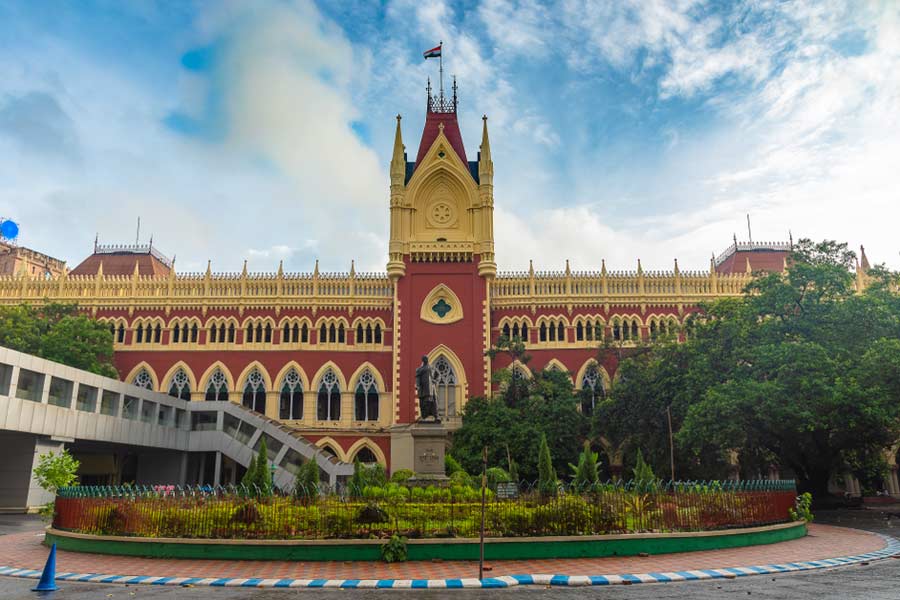CPM youth leader Kalatan Dasgupta, arrested for allegedly plotting an attack on doctors protesting against the RG Kar brutality, has moved high court seeking bail and quashing of the proceedings against him.
Hearing his plea on Tuesday, Justice Rajarshi Bharadwaj asked for an affidavit from the state government stating the legal grounds for his arrest.
The state will have to file the affidavit on Thursday when the case comes up for hearing again.
Dasgupta, a leader of the CPM youth wing DYFI, was arrested on Saturday morning. He was the second person arrested in the case.
The case came to the fore on Friday after Trinamul leader Kunal Ghosh played
an audio clip in which two persons were heard “planning an attack on the protest
site”.
Another suspect, Sanjib Das, a resident of Haltu Garden Road in Kasba, was picked up on Friday.
Police on Saturday said they had verified the authenticity of the audio clip. The two persons heard in the clip were Das and Dasgupta, a senior police officer said.
Senior advocate Bikash Ranjan Bhattacharyya, who moved the petition on behalf of Dasgupta, argued that there was no direct evidence against his client.
“On September 13, police arrested a person, Sanjib Das. Kalatan was arrested next, based on an alleged conversation between him and Sanjib. The police did not test the voice in the clip and match it with my client’s voice,” said Bhattacharyya.
Bhattacharyya also said that Dasgupta was arrested under Section 196 of the Code of Criminal Procedure (CrPC), a non-bailable section, without issuing him a necessary notification under Section 41A.
Section 196 of the CrPC deals with “offences committed against the State”. Section 41A of the CrPC deals with the issue of a notice to an accused instead of arresting them. This provision was added in 2010 to protect the rights of individuals and reduce unnecessary arrests, a veteran lawyer told this newspaper.
At the hearing on Tuesday, Bhattacharyya asked: “A phone call was received from the other phone. How can police arrest a person without conducting proper inquiry about the details of the conversation?”
Opposing the bail plea, Kishore Datta, the state advocate-general, said: “Depositions were undertaken under Section 161 of the CrPC both from Sandip and Kalatan. Both admitted to having talked to each other.”
Section 161 of the CrPC deals with the examination of witnesses by police officers. It says a police officer “may examine orally any person supposed to be acquainted with the facts and circumstances of the case”.
At this, the judge asked if the petitioner (Dasgupta) had “admitted” that he was discussing an attack on the protesting doctors.
The advocate-general said: “The entire conversation was about a big conspiracy.”










